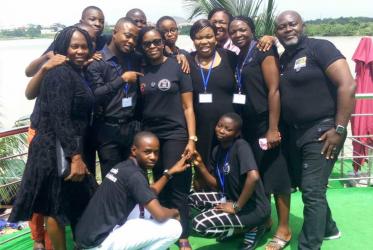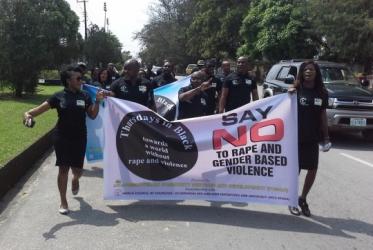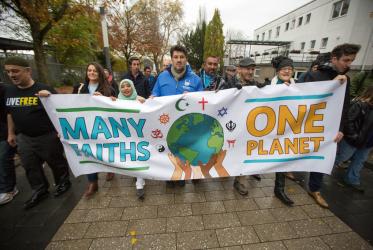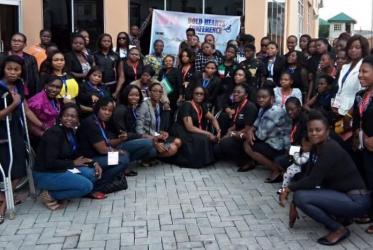Displaying 181 - 200 of 297
In Nigeria, Thursdays in Black is flourishing
26 March 2018
At CSW62, “stories are the heartbeat”
21 March 2018
Day of prayer and fasting for peace in South Sudan, Democratic Republic of Congo
23 February 2018
Worldwide
COP 23 “debriefing” brings faith and ethical perspectives
23 January 2018
Tveit to World Economic Forum: “Say no to nuclear weapons”
22 January 2018
Conversation on HIV “must continue,” Faith Networking Zone shows
07 December 2017
Ugandan Mothers’ Union leader helps overcome HIV
31 October 2017
Forum strengthens ecumenical commitment to diakonia
12 October 2017
“Do you know where to search for your lost child?”
18 July 2017












